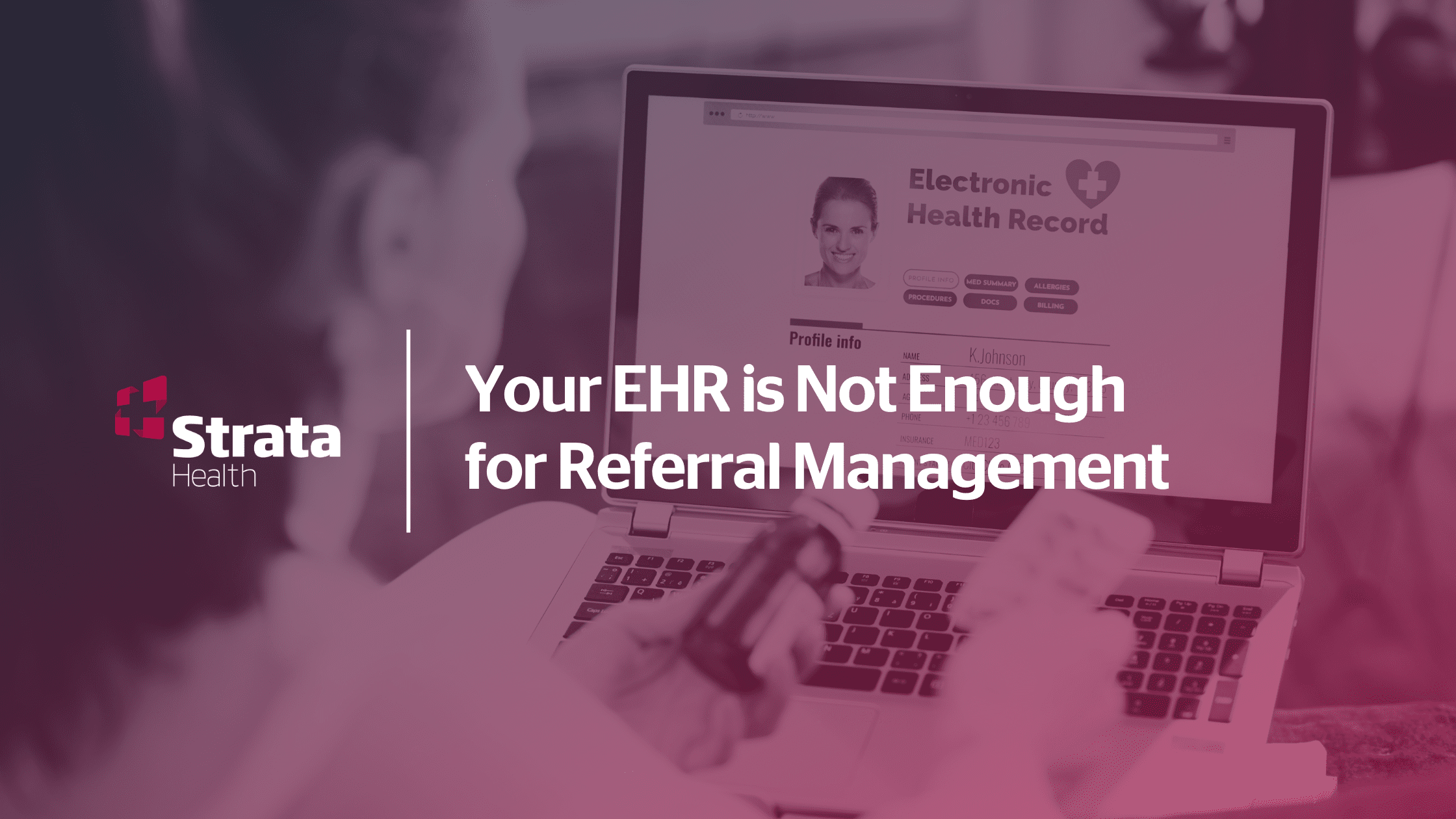
When it comes to discharge planning, efficient referral management is crucial for ensuring smooth transitions to post-acute care facilities. A recent Case Management Survey by Strata Health, involving over 340 US case managers, sheds light on critical insights. While 40% use their Electronic Health Record (EHR) for referral management, many face notable challenges. This begs the question: Are EHRs truly sufficient for referral management and transitions of care?
The Limitations of EHRs
While EHRs have undoubtedly transformed the way healthcare providers store and access patient information, they fall short in the realm of referral management. One of the key limitations is the lack of interoperability. Often, healthcare facilities use different EHR systems that fail to communicate with each other. This siloed approach results in fragmented information, hindering the smooth flow of referrals.
Moreover, EHRs are primarily designed for documentation and billing, not for managing the complex web of patient referrals. Case managers highlighted challenges including:
- Limited communication tools that inhibit seamless collaboration.
- Lack of timely notifications or alerts, potentially leading to delays and oversights.
- Cumbersome manual processes for adding or updating facility information, involving the tedious submission of IT tickets.
- The need to individually select, load, and send each document, contributing to inefficiency.
- Difficulty in tracking the status of referrals, adding complexity to the overall management process.
These limitations impede timely and effective collaboration among hospital staff and post-acute care providers, ultimately impacting patient care.
A Better Solution: An Integrated Referral Management Platform
Recognizing EHR challenges, hospitals are increasingly adopting integrated referral management platforms to streamline workflows. Unlike EHRs, these purpose-built platforms offer centralized and standardized systems, facilitating efficient communication, real-time tracking, and comprehensive reporting.
Platforms like Strata Send bridge gaps between disparate healthcare systems, fostering collaboration among care providers. They provide a holistic view of the referral process, enabling case managers to make informed decisions and prioritize patient care.
Moreover, these platforms can be embedded in the EHR and often come equipped with automation features, reducing manual workloads and minimizing the risk of errors. Automated alerts and notifications keep all involved parties informed, ensuring that no crucial steps or details are overlooked during the referral process. This results in faster response times, improved patient outcomes, and enhanced overall healthcare efficiency.
Strata Health – Your Partner in Referral Management
In today’s healthcare landscape, seamless coordination and swift decision-making are imperative. Relying solely on EHRs for referral management can prove to be a burden obstructing timely transitions from one setting to another. Explore the benefits of Strata Health’s referral management platform, Strata Send, to overcome EHR limitations.
Contact us today to discover how Strata Health’s innovative solutions can empower your hospital to optimize referral workflows, enhance collaboration, and ultimately provide better patient care.